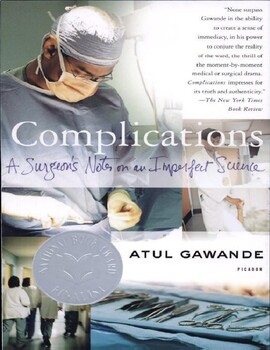
When no such answer explains, doctors are puzzled and sometimes question that the problem exists. Doctors are always looking for a physical, logical, or scientific explanation of a problem.

He reviews such medical mysteries related to superstition, chronic pain, nausea, blushing and appetite. Gawande discusses another way in which imperfection occurs-because there is still much that people and science cannot explain. He also notes how doctors learn from each other-whether during a professional conference or from watching a good doctor fall. Mistakes are learning opportunities themselves, as Gawande demonstrates as he retells a botched intubation that is reviewed during a meeting with the doctors to discuss unexpected outcomes. Although Gawande dislikes making mistakes, he knows he will make them and realizes that the difference is what happens after they are made. Gawande talks about his first surgical procedure and how his failed attempts improved each time before he was successful. Learning, in turn, demands that mistakes be made. Humans are not perfect, but striving to be perfect requires practice and learning. In Part I "How We Learn," Gawande discusses that medicine will always be prone to errors so long as it is performed by humans. In "Complications," Gawande lays out several ways in which medicine is imperfect and will continue to be imperfect.


Gawande describes his experiences in the field, in learning and interpreting medical mysteries and facing uncertainties, and the philosophical questions he encounters from these experiences. "Complications: A Surgeon's Note on an Imperfect Science" is a collection of stories and personal essays written by Dr.


 0 kommentar(er)
0 kommentar(er)
